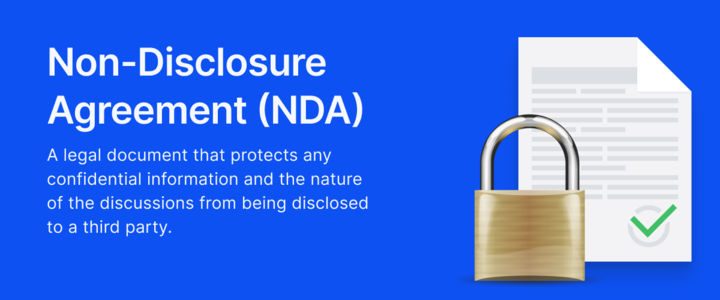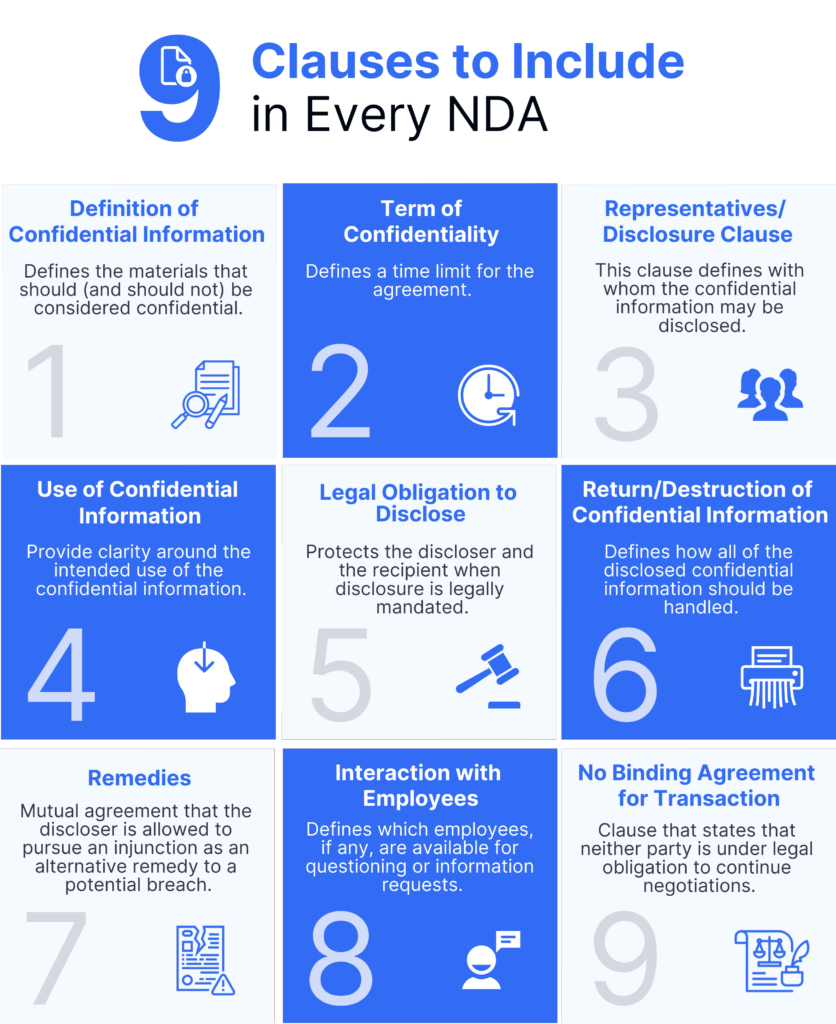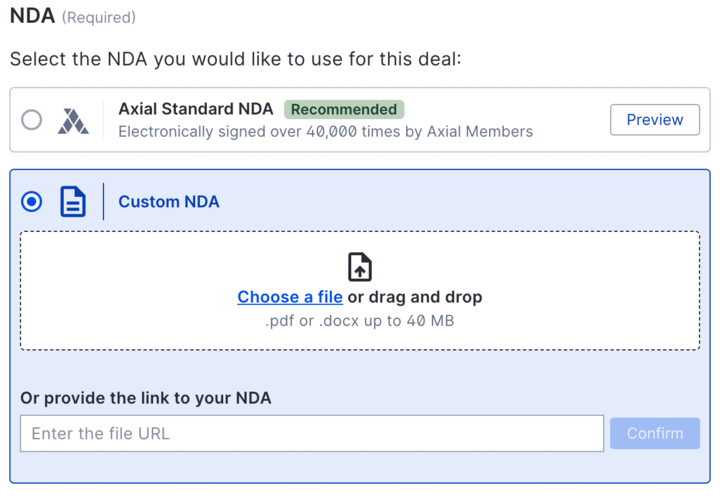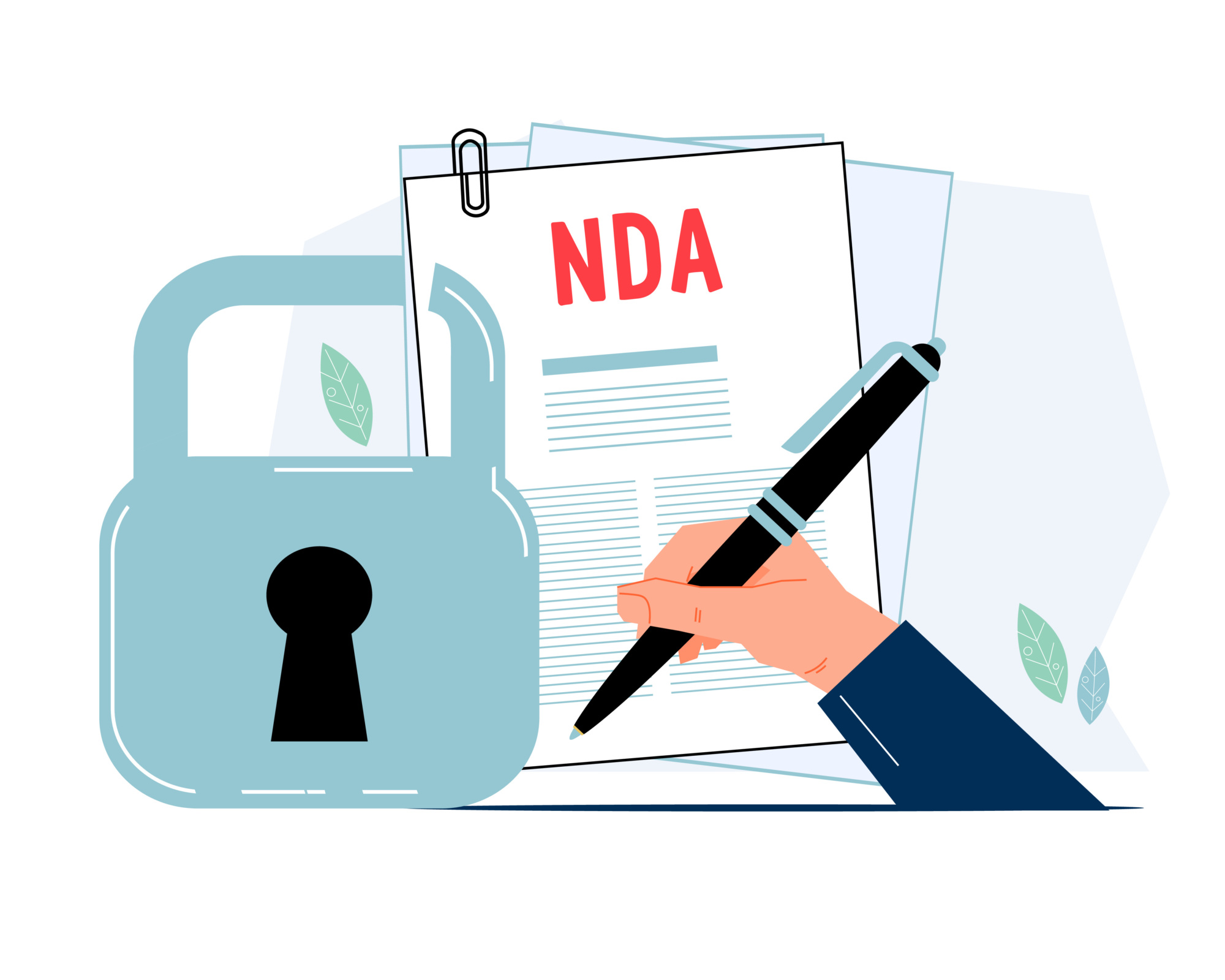
The Top 50 Lower Middle Market Technology Investors & M&A Advisors [2025]
Technology remains a steady presence in the lower middle market, representing ~13% of deals brought to market via Axial over…
Non-disclosure agreements (NDAs) are the first step for almost every deal — but their importance can easily be overlooked. In most transactions, the disclosing party is the business seeking capital or investment, and the receiving party is the investor.

Proper management of the NDA can provide both sides with an early indicator of what the entire negotiation process will be like. Neglecting the NDA’s importance could lead to legal complications later on.
Today’s article covers nine clauses that should be included in every NDA. See the end of this feature for the NDA offerings for Axial members.

The definition of confidential information may vary based on the specific transaction. It’s critical for every NDA to clearly define the materials that should (and should not) be considered confidential. Materials may include conversations, written notes, analysis, and documents produced with the use of the confidential information. Special mention should be made for any materials that are considered to include trade secrets.
All NDAs should clearly define a time limit for the agreement. The specific duration is determined based on factors such as the nature of the information being disclosed, the industry norms, and the preferences of the parties involved in the agreement.
This clause defines the individuals or entities (representatives) who are authorized to receive and use the confidential information for the purposes outlined in the agreement. It often includes employees, contractors, attorneys, advisors, and financing sources. Ensuring these parties have access to the confidential information is critical for due diligence and analysis.
This section is meant to provide clarity on the intended use of the confidential information. For most standard M&A NDAs, the confidential information is limited to the evaluation and negotiation of the potential transaction.
For the recipient, the best strategy is to have no limitations on the use of the confidential information. However, few business owners would feel comfortable with that much openness built into the contract. Instead, some recipients prefer using a shorter term for the NDA to help mitigate the issue.
Although an NDA aims to prevent the divulgence of confidential information to external parties, there are instances where such disclosure becomes inevitable. Necessary exemptions to the NDA must be made in cases where administrative or legal procedures mandate disclosure. For example, if a financial sponsor is under investigation by the SEC, it may be required to disclose confidential documents despite the terms of the NDA.
Including a clause specifying the handling of disclosed confidential information is crucial. Traditionally, this clause mandates the return or destruction of materials either at the conclusion of negotiations or within a specified timeframe. Additionally, it typically requires the recipient to confirm, upon the discloser’s request, the return or destruction of all confidential information.
A remedies clause outlines the actions that can be taken in the event of a breach of the NDA. It specifies the legal remedies available to the parties if one of them fails to uphold their obligations regarding confidentiality.
Common remedies outlined in this clause include:
During the initial phases of a deal, many business owners are concerned about the information regarding the transaction spreading to employees and external parties. To mitigate such information leaks, many disclosers require the NDA to limit interaction with employees, specifically in regard to solicitation or hiring. NDAs should clearly define which employees, if any, are available for questioning or information requests.
NDAs should also include a clause that clearly states that neither party is under legal obligation to continue negotiations. The NDA does not indicate any formal relationship or partnership; therefore, either party can terminate discussions at any point.
To review each clause in more depth, you can download the eBook below.
NOTE: This information does not, and is not intended to, constitute legal advice; instead, all information, content, and materials available on this site are for general informational purposes only.
 Non-Disclosure Agreement Offerings on Axial
Non-Disclosure Agreement Offerings on AxialAxial is committed to facilitating secure and confidential business transactions. Our Non-Disclosure Agreement (NDA) offerings are designed to protect sensitive information exchanged during the deal-making process.
Axial Standard NDA: A streamlined agreement designed for quick and efficient protection of confidential information. The Axial Standard NDA is developed to meet the needs of most transactions, offering a balanced approach to confidentiality that is acceptable to a wide range of parties. By choosing the Axial Standard NDA, our members can quickly move forward with confidence, knowing their information is protected under a mutually respectful agreement.

Customizable NDA Templates: Axial empowers its members to facilitate secure and personalized transactions by offering the capability to upload their own NDAs. Recognizing the diverse needs and preferences of our members, this feature allows for necessary customization and flexibility. Members can upload their NDA documents, ensuring that the specific terms and conditions unique to their transaction are accurately reflected.
Digital Signature Capability: Understanding the need for efficiency, Axial integrates digital signature technology, allowing parties to sign NDAs securely online. Members can tailor the signing process according to their unique requirements. This accelerates the agreement process, enabling faster progression to negotiations.
Streamline Access to the CIM: Axial tracks NDA signatures on the platform and notifies members when an NDA is signed. This ensures members can securely share the Confidential Information Memorandum (CIM) and other critical documents immediately after an NDA is signed, offering peace of mind and enhancing trust between parties. By monitoring the e-signature process, Axial upholds the highest standards of security, facilitating smooth and secure business engagements.
Exit Ready is the Axial newsletter that distills the best content, tips, and guides designed to educate exit-minded business owners running $5-$100M businesses.
